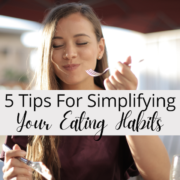Why is mindful eating important?
Why is mindful eating and pacing the eating of your meal a great part of good health? We are going to talk about that here today… even though it’s nearing the holiday’s and we might want to eat without much discretion.
Even during the holiday’s, it’s important to enjoy the splendor in your meals while pacing yourself and enjoying your meal. The holiday season is well known for the added temptation of celebratory meals, parties, and gifts that seduce the senses. We expect your brain to be enticed with holiday spreads, but I suspect you have already been enticed by commercials and cookbook illustrations even in the planning stage. I sure have!
Your Meal Mindfully
The challenge lies in the promise of dopamine-generated pleasure, all designed to make us eat more now and suffer later. But I have good news! There’s a simple mindfulness-based approach you can use to turn off the addiction centers in your brain.
Savor tiny bites of everything you crave.
Brain scan studies have demonstrated that eating slowly and savoring each bite for 20 seconds satiates the reward centers in your brain. It also stimulates areas that give you more conscious control over what you choose to eat. Mindful eating clearly has a different effect than our normal eating pattern.
Pace Yourself Instead
The majority of us eat mindlessly. We pop bites in our mouth and taste them fleetingly as we chew twice and swallow. That brief moment of flavor simply draws us to consume bite after bite with little control.
Super-slow savoring of small bites of food stimulates the satiation and fullness centers in both your gut and your brain, enabling you to enjoy your food more and eat less. It will require focus – mindfulness – to hold a morsel of food in your mouth for 20 seconds, which is the time required for your brain to register the nutrients you are consuming.
Mindful Eating for Your Brain
Should this seem like a huge undertaking, consider that mindful eating may also help regulate glucose metabolism in your brain so that you crave sweets less. Studies also show that this approach can reduce anxiety, worry, depression and irritability – the same feelings that often cause people to mindlessly overeat.
How do you get started? Sit down with your plate of food and choose one item on which to focus. Gaze at that food, smell it, and touch a small piece to your lips. Notice the sensations. Now place a small bite on your tongue and notice the development of flavors. Finally, chew while you continue to observe the flavors and swallow. I’ll bet you will feel more satisfied.
The biggest discovery from the latest research is that mindful eating can stop you from binging! So slow down, tune in to every bite you take and savor a whole new experience.







